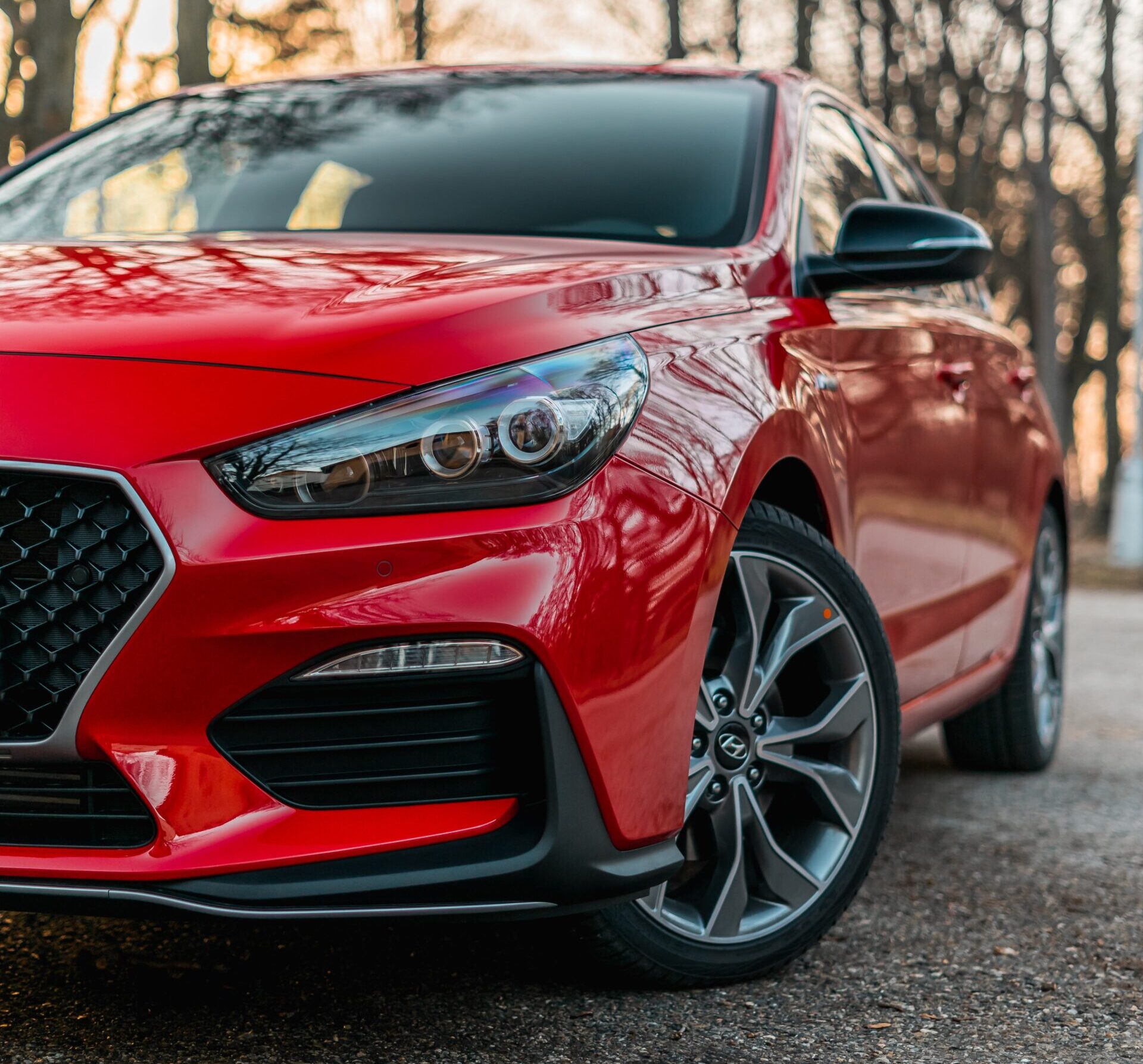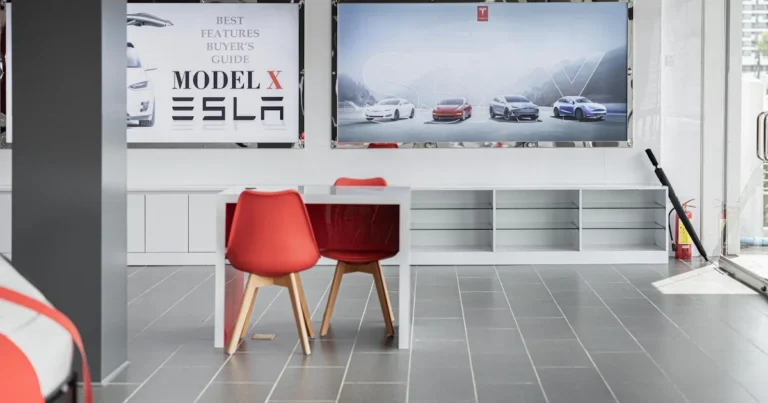Support our educational content for free when you purchase through links on our site. Learn more
Is Leasing a Car Cheaper Than Owning? The 7 Truths You Need in 2025 🚗
Ever wondered if leasing a car really saves you money compared to buying one? You’re not alone! Millions face this dilemma every year, juggling monthly budgets, mileage limits, and the allure of driving a brand-new ride every few years. Spoiler alert: the answer isn’t as black-and-white as you might think. At Car Leases™, we’ve crunched the numbers, dissected lease agreements, and compared real-world scenarios to reveal when leasing is a wallet-friendly win—and when owning takes the crown.
Stick around because later, we’ll uncover a clever hybrid strategy that might just let you have your cake and drive it too. Plus, we break down the hidden costs that often trip up unsuspecting drivers. Ready to find out which option truly revs up your savings?
Key Takeaways
- Leasing usually offers lower monthly payments and less upfront cash, perfect if you love new cars every few years and drive moderately.
- Owning builds equity and is more cost-effective long-term, especially if you keep your car past loan payoff or drive high mileage.
- Watch out for lease mileage limits and wear-and-tear fees—these can add unexpected costs.
- A hybrid lease-buy-lease strategy can balance flexibility and ownership benefits for savvy drivers.
- Tax implications and insurance requirements differ significantly between leasing and buying—consult a professional for your situation.
Explore the latest deals on popular models like the Toyota RAV4 Hybrid, Honda CR-V, and Ford Escape to see how leasing stacks up in today’s market!
Ready to dive deeper? Let’s hit the road!
Table of Contents
- ⚡️ Quick Tips and Facts: Leasing vs. Owning at a Glance
- 🚗 The Evolution of Automotive Acquisition: A Brief History of Car Ownership and Leasing
- 🤔 The Million-Dollar Question: Is Leasing Truly Cheaper Than Owning?
- 💰 The Hidden Costs of Car Ownership: Beyond the Monthly Payment
- 1. Depreciation: The Silent Killer of Your Car’s Value
- 2. Maintenance and Repairs: Keeping Your Ride Running Smoothly
- 3. Insurance Premiums: Protecting Your Investment (or Lease)
- 4. Registration, Taxes, and Fees: The Bureaucratic Burden
- 5. Fuel Costs: Filling Up Your Tank
- 6. Opportunity Cost: What Else Could That Money Do?
- 🔑 The Perks and Pitfalls of Leasing: A Deep Dive into Lease Agreements
- 🏡 The Joys and Responsibilities of Owning: Building Equity and Freedom
- 📊 Total Cost of Ownership (TCO) Analysis: A Comprehensive Comparison
- 💡 Expert Advice: When Does Leasing Make Sense? When Does Owning Win?
- ⚖️ The Taxman Cometh: Understanding Tax Implications for Leased vs. Owned Vehicles
- 🔄 The “Lease-Buy-Lease” Cycle: Is There a Hybrid Strategy?
- Conclusion: So, Is Leasing Cheaper? Our Final Verdict!
- Recommended Links: Dive Deeper into Car Leases and Ownership
- FAQ: Your Burning Questions Answered About Car Leasing vs. Buying
- Reference Links: Our Sources and Further Reading
⚡️ Quick Tips and Facts: Leasing vs. Owning at a Glance
Thinking about whether leasing a car is cheaper than owning? 🤔 Let’s kick things off with some quick hits from the Car Leases™ crew to get your mental engine revving:
- Leasing usually means lower monthly payments than financing the same car. ✅
- Leases often require little to no down payment, but watch out for acquisition fees. ✅
- Owning builds equity — you own the car outright after loan payoff. ✅
- Leasing has mileage limits (typically 10,000–15,000 miles/year) and penalties for excess wear. ❌
- Owning means you’re responsible for maintenance and repairs once the warranty expires. ❌
- Leasing lets you drive a new car every few years without the hassle of selling. ✅
- Buying is better if you keep cars long-term or drive a lot of miles. ✅
For a deep dive into the nitty-gritty of leasing basics, check out our Car Lease Basics section. Also, if you want to understand how 0% leasing works, our article What is 0% Leasing? 7 Essential Insights You Need to Know! 🚗 2025 is a must-read.
🚗 The Evolution of Automotive Acquisition: A Brief History of Car Ownership and Leasing
Before we zoom into the numbers, let’s take a quick pit stop to appreciate how car acquiring evolved:
- Early 20th century: Cars were a luxury; most people bought them outright.
- Mid-1900s: Auto loans became popular, making ownership accessible.
- Late 20th century: Leasing emerged as a flexible alternative, initially popular with businesses.
- Today: Leasing is mainstream, especially for consumers wanting new rides every few years without the hassle of resale.
Leasing’s rise is tied to changing consumer preferences—people want flexibility, lower monthly costs, and the latest tech without long-term commitment. But is it cheaper? We’ll unpack that soon.
🤔 The Million-Dollar Question: Is Leasing Truly Cheaper Than Owning?
Let’s break down the two biggest cost buckets you’ll face: upfront costs and monthly payments.
Unpacking the Upfront Costs: Down Payments and Initial Fees
- Leasing: Usually requires a small or zero down payment, but watch for acquisition fees ($500–$1,000 range). Sometimes dealers waive these to sweeten deals.
- Buying: Typically demands a larger down payment (often 10–20% of the car’s price) to secure better loan terms.
Pro tip: If you’re cash-strapped upfront, leasing can seem cheaper — but beware of hidden fees.
Monthly Payments Showdown: Lease Payments vs. Loan Payments
- Lease payments cover depreciation + interest + fees, so they’re generally lower than loan payments for the same vehicle.
- Loan payments pay off the entire vehicle cost plus interest — usually higher monthly bills but you gain ownership.
Here’s a quick comparison table for a mid-size SUV (e.g., Toyota RAV4 Hybrid):
| Aspect | Leasing | Buying (Loan) |
|---|---|---|
| Typical Down Payment | $0 – $1,000 | 10-20% of vehicle price |
| Monthly Payment | Lower (covers depreciation) | Higher (covers full price) |
| Ownership at End | No (return or buyout option) | Yes (car is yours) |
| Mileage Limits | Yes (10k-15k miles/year) | No |
| Customization Allowed | No | Yes |
💰 The Hidden Costs of Car Ownership: Beyond the Monthly Payment
Owning a car isn’t just about loan payments. Here’s what else you’re on the hook for:
1. Depreciation: The Silent Killer of Your Car’s Value
- New cars lose 20-30% of their value in the first year and about 50-60% over five years (Kelley Blue Book).
- When you own, depreciation hits your resale value directly.
- Leasing shifts this risk to the leasing company — you pay for depreciation during the lease term.
2. Maintenance and Repairs: Keeping Your Ride Running Smoothly
- Leased cars are usually under warranty, so repairs are often covered.
- Owning means you pay for maintenance and repairs after warranty expires.
- Older cars can get expensive to maintain, but you avoid lease-end wear-and-tear fees.
3. Insurance Premiums: Protecting Your Investment (or Lease)
- Lease contracts often require higher insurance coverage (e.g., lower deductibles).
- Ownership insurance can be customized more flexibly.
4. Registration, Taxes, and Fees: The Bureaucratic Burden
- Both leasing and owning require registration and taxes.
- Some states tax the entire vehicle price upfront when buying; leasing taxes monthly payments.
- Check your state’s rules for specifics.
5. Fuel Costs: Filling Up Your Tank
- Fuel costs are the same regardless, but hybrid or EV leases can reduce this (see our Electric Vehicle Leases for options).
6. Opportunity Cost: What Else Could That Money Do?
- Money tied up in down payments or equity could be invested elsewhere.
- Leasing frees up cash flow but no asset is built.
🔑 The Perks and Pitfalls of Leasing: A Deep Dive into Lease Agreements
✅ Advantages of Leasing: New Cars, Lower Payments, and Flexibility
- Drive a new car every 2-3 years with the latest tech and safety features.
- Lower monthly payments compared to buying.
- Minimal repair costs during warranty.
- No hassle of selling or trading in.
- Potential tax advantages for business use (IRS Guidelines).
❌ Disadvantages of Leasing: Mileage Limits, Wear and Tear, and No Equity
- Mileage caps can lead to costly penalties ($0.15–$0.30 per extra mile).
- Fees for excessive wear and tear.
- No ownership equity — you’re essentially renting.
- Early termination fees can be steep.
Understanding Lease Terms: Residual Value, Money Factor, and Acquisition Fees
- Residual Value: Estimated car value at lease end; higher residual = lower payments.
- Money Factor: Lease interest rate expressed as a decimal; multiply by 2400 for APR.
- Acquisition Fees: Upfront administrative fees charged by leasing companies.
End-of-Lease Options: Return, Buyout, or Lease Again?
- Return the car and walk away.
- Buy the car at residual value (sometimes a bargain).
- Lease a new vehicle and repeat the cycle.
🏡 The Joys and Responsibilities of Owning: Building Equity and Freedom
✅ Advantages of Owning: Equity, No Restrictions, and Customization
- Full ownership after loan payoff.
- Unlimited mileage and freedom to modify.
- Can sell or trade-in anytime.
- Long-term cost savings if you keep the car beyond loan term.
❌ Disadvantages of Owning: Depreciation, Resale Hassles, and Higher Upfront Costs
- Higher monthly payments.
- Responsible for all repairs after warranty.
- Depreciation risk.
- Selling or trading can be time-consuming.
New vs. Used: Does Buying a Pre-Owned Car Tilt the Scales?
- Used cars have slower depreciation and lower upfront costs.
- May have higher maintenance costs.
- Buying used can be a smart way to own cheaply, but beware of hidden issues.
📊 Total Cost of Ownership (TCO) Analysis: A Comprehensive Comparison
Let’s crunch some numbers for different driver profiles. We modeled costs based on real-world data and Car Leases™ experience.
| Scenario | Leasing Cost (3 Years) | Buying Cost (3 Years) | Leasing Cost (5 Years) | Buying Cost (5 Years) |
|---|---|---|---|---|
| Short-Term Driver (12k mi/yr) | Lower monthly, fees included | Higher monthly, equity built | Leasing resets at 3 years | Ownership cheaper long-term |
| Long-Haul Owner (20k mi/yr) | Mileage penalties likely | No mileage limits | Ownership preferred | Ownership preferred |
| High-Mileage Commuter | Often not recommended | Best value over time | Same as above | Same as above |
Note: These are general trends; individual deals and driving habits vary.
💡 Expert Advice: When Does Leasing Make Sense? When Does Owning Win?
Your Driving Habits and Lifestyle: A Key Factor
- Lease if you drive less than 12,000–15,000 miles/year and want a new car often.
- Own if you rack up miles or want to keep your car long-term.
Financial Health and Future Plans: What’s Your Wallet Saying?
- Leasing suits those who want lower monthly payments and less upfront cash.
- Buying is better if you want to build equity and can afford higher monthly costs.
The Ever-Changing Automotive Market: Trends and Predictions
- EV leases are booming, with incentives making leasing attractive.
- Interest rates and residual values fluctuate, impacting lease affordability.
- Keep an eye on Latest Car Lease Deals for current offers.
⚖️ The Taxman Cometh: Understanding Tax Implications for Leased vs. Owned Vehicles
- Leasing payments may be fully or partially tax-deductible if used for business.
- Buying allows depreciation deductions but requires ownership.
- Sales tax on leases is often paid monthly; buying may require lump sum upfront.
- Consult a tax professional for your situation.
🔄 The “Lease-Buy-Lease” Cycle: Is There a Hybrid Strategy?
Some savvy drivers lease new cars for 2-3 years, then buy the car at lease-end to avoid depreciation losses, then lease again later. This hybrid approach can balance:
- Lower monthly payments initially.
- Building equity by buying at residual value.
- Flexibility to upgrade periodically.
It’s a bit like having your cake and eating it too — but requires careful calculation and timing.
By the way, if you want a visual walkthrough of these concepts, check out the popular YouTube video Leasing vs Buying a Car: Which is ACTUALLY Cheaper in 2025? by Humphrey Yang. It uses a Toyota RAV4 Hybrid scenario to break down costs and who benefits most from each option.
Conclusion: So, Is Leasing Cheaper? Our Final Verdict!
After cruising through the twists and turns of leasing versus owning, here’s the bottom line from your Car Leases™ pit crew:
- Leasing is generally cheaper in the short term thanks to lower monthly payments, minimal upfront cash, and warranty-covered repairs. It’s perfect if you love driving new wheels every few years and don’t rack up tons of miles.
- Owning is more cost-effective long term, especially if you keep your car beyond loan payoff, drive a lot, or want the freedom to customize and avoid mileage limits.
- The hidden costs—like depreciation, maintenance, and fees—can tip the scales depending on your lifestyle and financial goals.
- A hybrid lease-buy-lease strategy can sometimes offer the best of both worlds but requires savvy timing and planning.
So, is leasing cheaper? ✅ Yes, if you value lower monthly payments, flexibility, and new-car perks over ownership equity. But if you’re in it for the long haul, owning wins the race.
Remember, your perfect choice depends on your driving habits, budget, and personal preferences. We hope this guide helped you navigate the complex world of car acquisition with confidence and a smile. 🚗💨
Recommended Links: Dive Deeper into Car Leases and Ownership
Ready to explore your options? Check out these trusted platforms for the latest deals and inventory on popular models like the Toyota RAV4 Hybrid, Honda CR-V, and Ford Escape:
-
Toyota RAV4 Hybrid:
TrueCar | Edmunds | Toyota Official Website -
Honda CR-V:
TrueCar | Edmunds | Honda Official Website -
Ford Escape:
TrueCar | Edmunds | Ford Official Website
Explore our Latest Car Lease Deals for current specials and incentives!
FAQ: Your Burning Questions Answered About Car Leasing vs. Buying What are the financial benefits of leasing a car versus buying?
Leasing offers lower monthly payments because you’re paying for the vehicle’s depreciation during the lease term, not the full purchase price. You often avoid hefty down payments and repair costs since leased vehicles are under warranty. This can improve cash flow and reduce upfront expenses. However, leasing does not build equity—your payments don’t contribute to ownership, unlike buying.
How do monthly payments compare between leasing and owning a car?
Lease payments are typically 30-50% lower than loan payments for the same vehicle because you’re only financing depreciation plus interest and fees. Loan payments cover the entire vehicle price plus interest, so they’re higher but lead to ownership. Leasing’s lower payments make it attractive if you want to keep monthly costs down.
Are there tax advantages to leasing a vehicle?
Yes! For business owners, lease payments can often be deducted as a business expense more easily than loan payments, which may require depreciation schedules. Sales tax on leases is usually paid monthly on the payment amount, potentially easing upfront tax burdens. Tax laws vary by state and personal situation, so consult a tax professional.
What are the long-term costs of leasing compared to owning a car?
Leasing can be more expensive over many years if you continuously lease because you never stop making payments and never build equity. Owning a car long-term typically results in lower total costs after the loan is paid off, despite higher upfront and monthly payments. Depreciation and maintenance costs are significant factors in both cases.
Can leasing a car save money on maintenance and repairs?
Often, yes. Leased vehicles are usually under the manufacturer’s warranty for the lease duration, so major repairs are covered. Owners bear repair costs after warranty expiration, which can add up. However, lessees must pay for excessive wear and tear, which can be costly if not managed carefully.
How does mileage affect the cost-effectiveness of leasing a car?
Mileage limits (usually 10,000–15,000 miles/year) are standard in leases. Exceeding these limits results in per-mile penalties, which can add hundreds or thousands to your lease cost. If you drive a lot, owning is generally more cost-effective since there are no mileage restrictions.
Is leasing a car a better option for people who want to drive new models frequently?
Absolutely! Leasing is designed for drivers who want to upgrade every 2-3 years without the hassle of selling a used car. It gives access to the latest safety, tech, and fuel-efficiency improvements. Just be mindful of mileage and wear limits to avoid extra fees.
Reference Links: Our Sources and Further Reading
- Investopedia: When Leasing a Car Is Better Than Buying
- Kelley Blue Book: How Much Does a Car Depreciate?
- IRS: Vehicle Expenses for Business
- Toyota Official Site: RAV4 Hybrid
- Honda Official Site: CR-V
- Ford Official Site: Escape
For more expert insights, visit our Car Lease Basics and Auto Financing Options categories.
Happy driving and smart leasing! 🚗💡
— Your friends at Car Leases™




